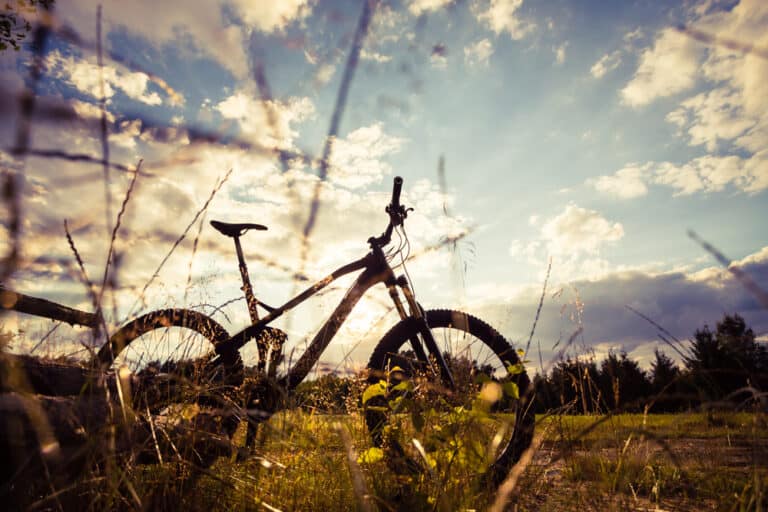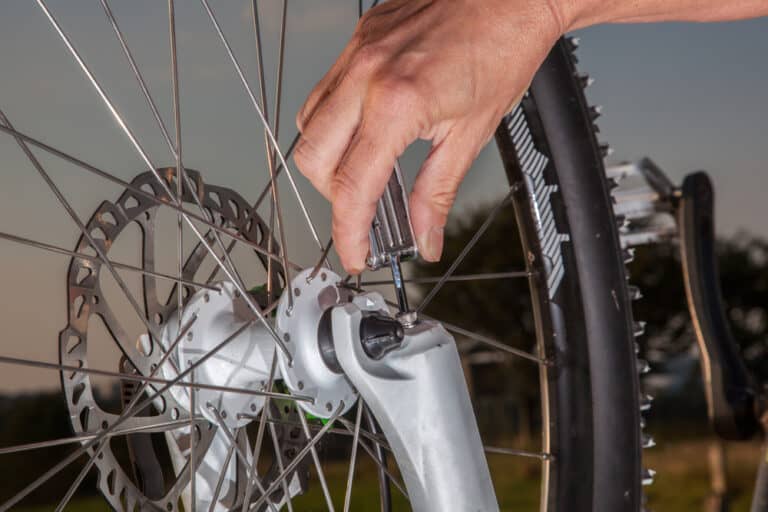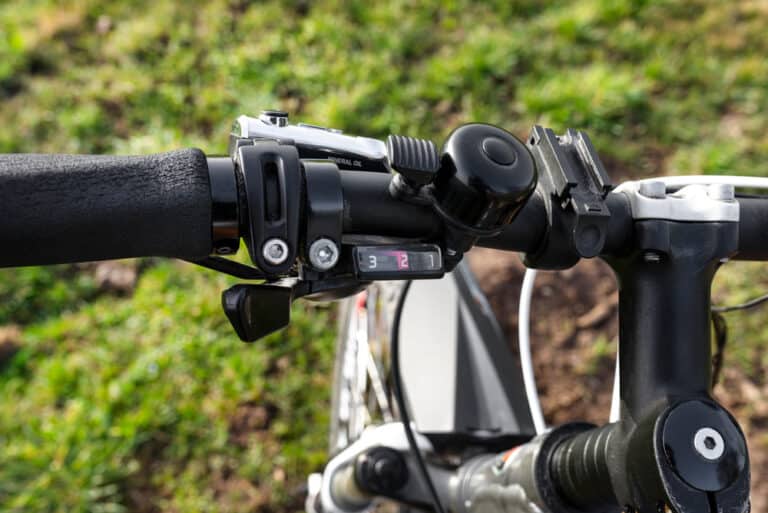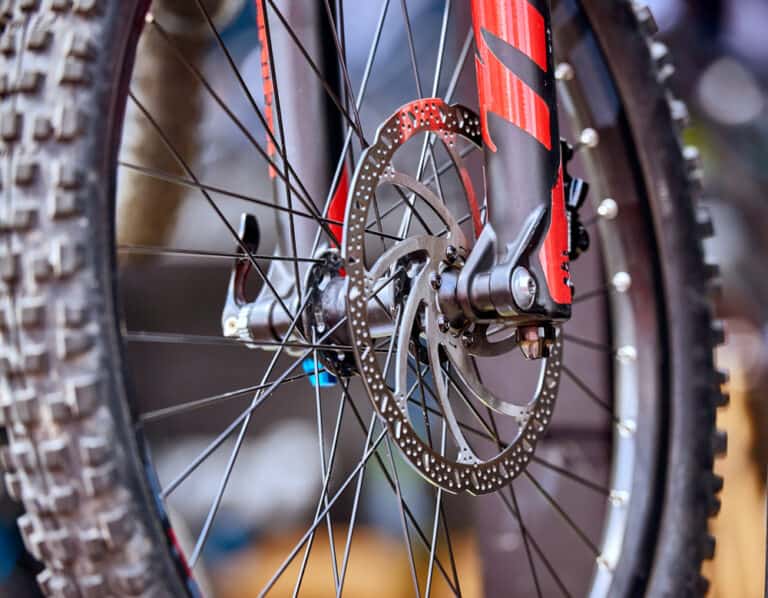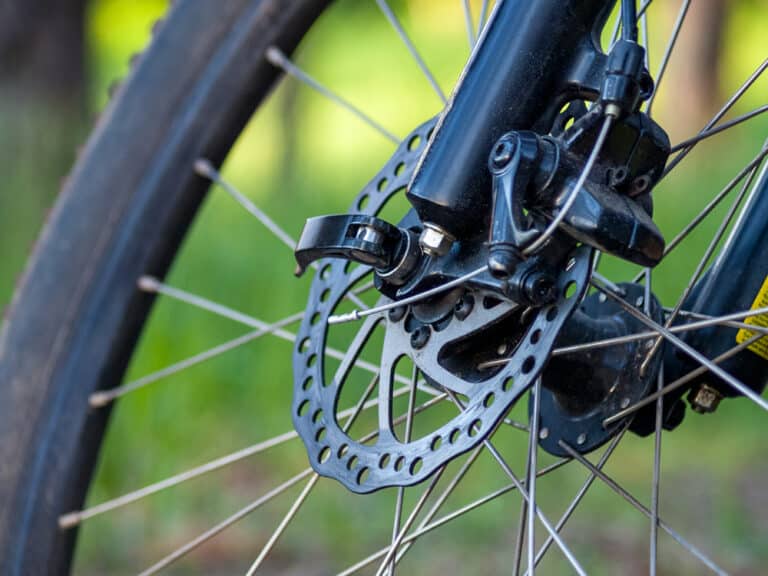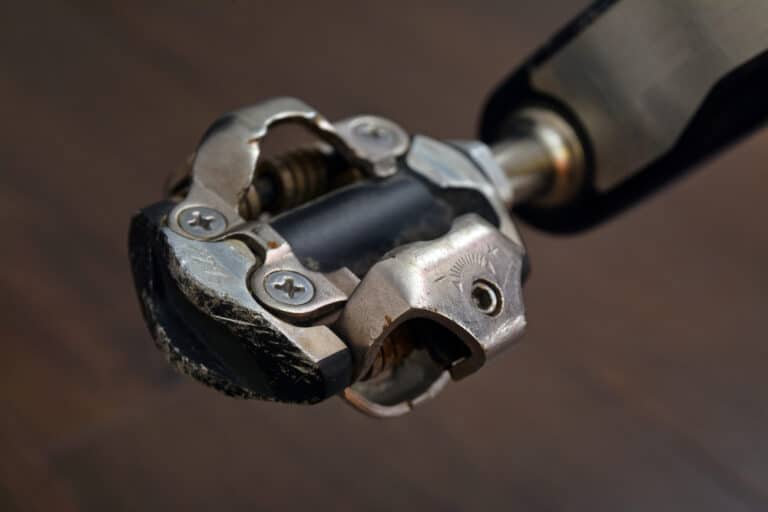How Hot Do MTB Brakes Get?

Editorial credit: Vaclav Volrab / Shutterstock.com
Mountain bikes often come with the best braking systems, such as Shimano. This is because trails can often be tricky, and riders might need to use their brakes excessively. However, excessive braking may cause your brakes to get hot, so how hot do mountain bike brakes get?
Mountain bike disc brakes can reach upwards of 800F (425C) without causing too many issues. Rim brakes can reach similar temperatures, which might cause excessive wear and tear on the pads. If you notice excessive heat coming from your brakes, slow down to let them cool off.
There are a few things that every rider should be aware of, and monitoring your brakes is a good way of ensuring your safety on any trail as well as maintaining your mountain bike. So, I want to discuss everything we need to know about how hot mountain bike brakes get. So, let’s jump into it.
Can MTB Brakes Overheat?
Disc brakes and rim brakes are the most popular types of brakes on mountain bikes, with disc brakes being the most powerful. Both types of brake systems can use a mechanical or hydraulic system. However, it is essential to distinguish between them; here’s why:
- Mechanical disc brakes and rim brakes can overheat, including the cables that connect the brakes to the levers. This overheating is rare, but it can damage the entire braking system of the mountain bike.
- Hydraulic brakes can also overheat. However, the brake fluid used in hydraulic braking systems will not; the boiling point is too high.
You would have to use any mountain bike braking system excessively over a short period to get them to overheat. It is not an issue that many bikes have, especially those that use premium systems such as Shimano.
How Hot Does MTB Brake Fluid Get?
Most of the kinetic energy caused by braking goes to the disc brakes without causing too much effect on the brake fluid. Also, the boiling point for brake fluid is rather high:
- Brake fluid dry boiling point: 400F to 550F (204C to 290C)
- Brake fluid wet boiling point: 280F to 355F (140C to 180C)
The difference between the wet and dry boiling point is easy to explain: The dry boiling point refers to unused or new brake fluid. The wet boiling point refers to brake fluid that is used and is rather old.
It is hard to say how hot mountain bike brake fluid gets because it depends on how old it is and how much you use them while riding. However, they hardly ever reach boiling point.
How Often Should You Replace Mountain Bike Brake Fluid?
As mentioned, the boiling point for brake fluid differs as the fluid gets older and absorbs more water. As a result, the brake fluid also becomes less effective and can start to cause a few issues.
So, replacing your mountain bike brake fluid at least once a year is best. If your braking system has a manual, it is advisable to stick to its recommendations. If you cannot find that information, I advise sticking with DOT 4 brake fluid, as it strikes a good balance between performance and durability.
How Hot Is Too Hot For MTB Brakes?
Different types of braking systems handle excessive heat differently. This statement applies to the methods and the brands. For example, Shimano, Daiwa, and Sram might be better than less reputable brands regarding heat dispersion and cooling.
Rim brakes typically have smaller pads than disc brakes. Therefore, they reach higher temperatures faster than disc brakes. They are also not as good as disc brakes when it comes to dealing with the heat.
- Disc brakes can be considered too hot when they reach above 850F (454C)
- Rim brakes should not exceed 650F (353C)
In most cases, riders cannot tell how hot the brakes are. Instead, intuition plays a significant role. If your brakes feel too hot or start to perform poorly, allow them to cool off for a short while.

Should MTB Brakes Be Hot To The Touch?
Mountain bike brakes should feel warm to the touch after a short and casual session. Likewise, they should feel hot to the touch after an ordinary session. However, this question is a tricky one to answer because it depends on a few factors. So let’s take a look:
- How hot do they feel?
- How long has your riding session been?
- How old are the brakes?
If you have been riding casually for five minutes without braking excessively, your brakes should be warm, not hot. At this point, if the brakes are too hot, it could mean there is an issue.
Older brakes perform worse than new brakes, and they build up heat faster while taking longer to cool down.
Can Overheated MTB Brakes Catch Fire?
I don’t want to say that mountain bike brakes don’t catch fire when overheating because it is a possibility. However, it is very rare, and I’ve never seen or heard about it. That doesn’t mean that your mountain bike brakes should be ignored when they overheat because there are a few things that will happen:
- The brakes will experience excessive wear and tear at an accelerated rate
- Any mechanical components, such as cables, will also experience wear and tear
- The brake fluid might start to overheat, especially if it is older and contains over 3% water
- In the rare case that brake fluid starts to boil, it will begin to go from a liquid to a gas, and the performance of the brakes will be hindered.
As mentioned, you should try and determine whether or not your brakes are too hot. This can be done by monitoring performance or putting your hand close to any components. Avoid letting them overheat by cooling them down; it only takes a few minutes.
Do Hot Brakes Stop Faster?
Brakes need to warm up on all types of vehicles before reaching optimum performance, and it is no different from mountain bikes.
After approximately five or ten minutes of riding, the brakes will start to work better, but if they get too hot, performance will begin to drop significantly with hydraulic brakes.
Conclusion
Mountain bike brakes are durable and can withstand temperatures slightly above 800 degrees Fahrenheit. By assessing the temperature of your brakes, you can ensure that they last longer, as they won’t endure as much wear and tear as if you were to ignore the heat altogether.

